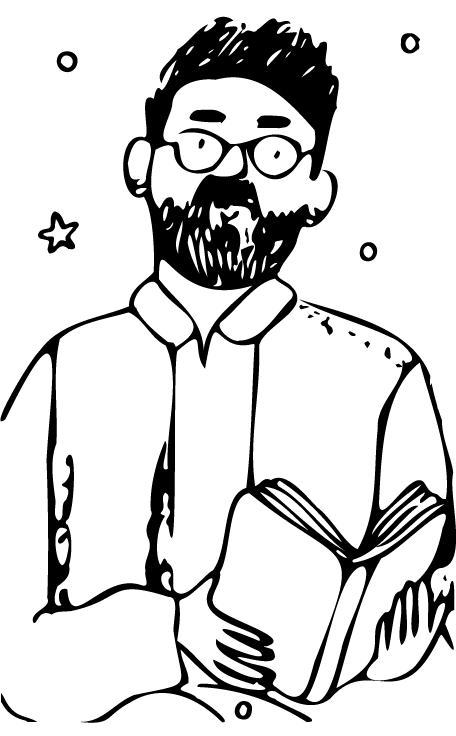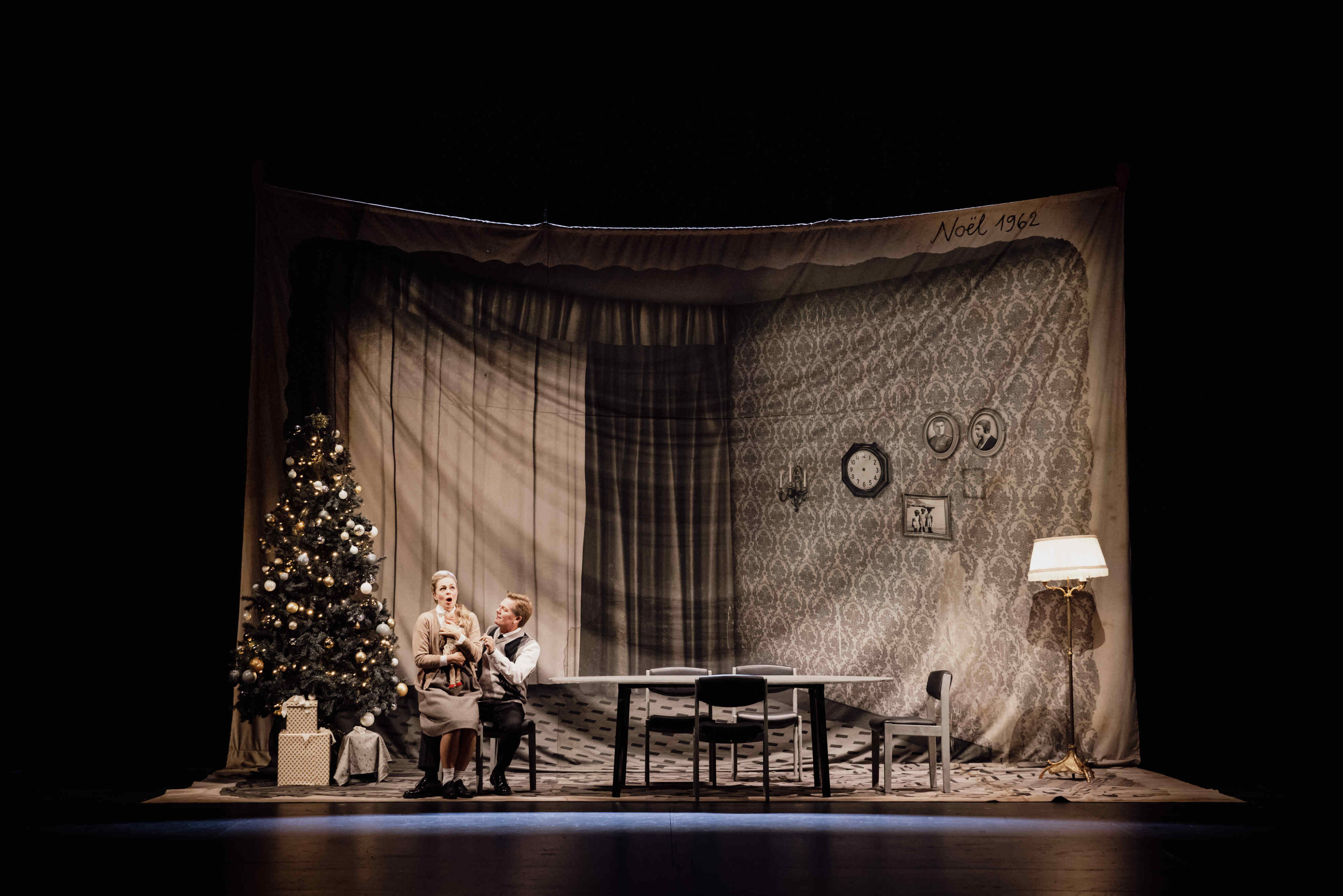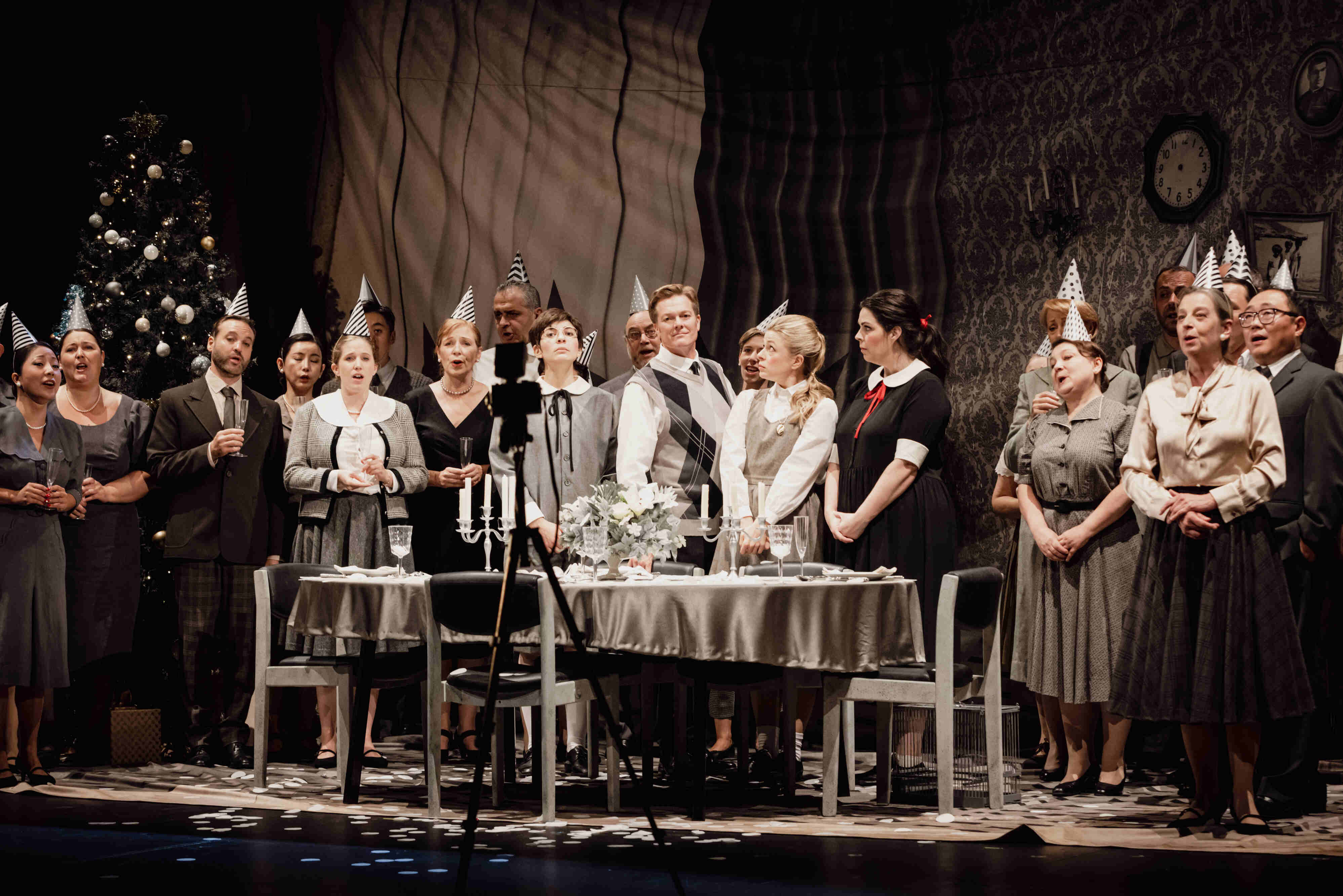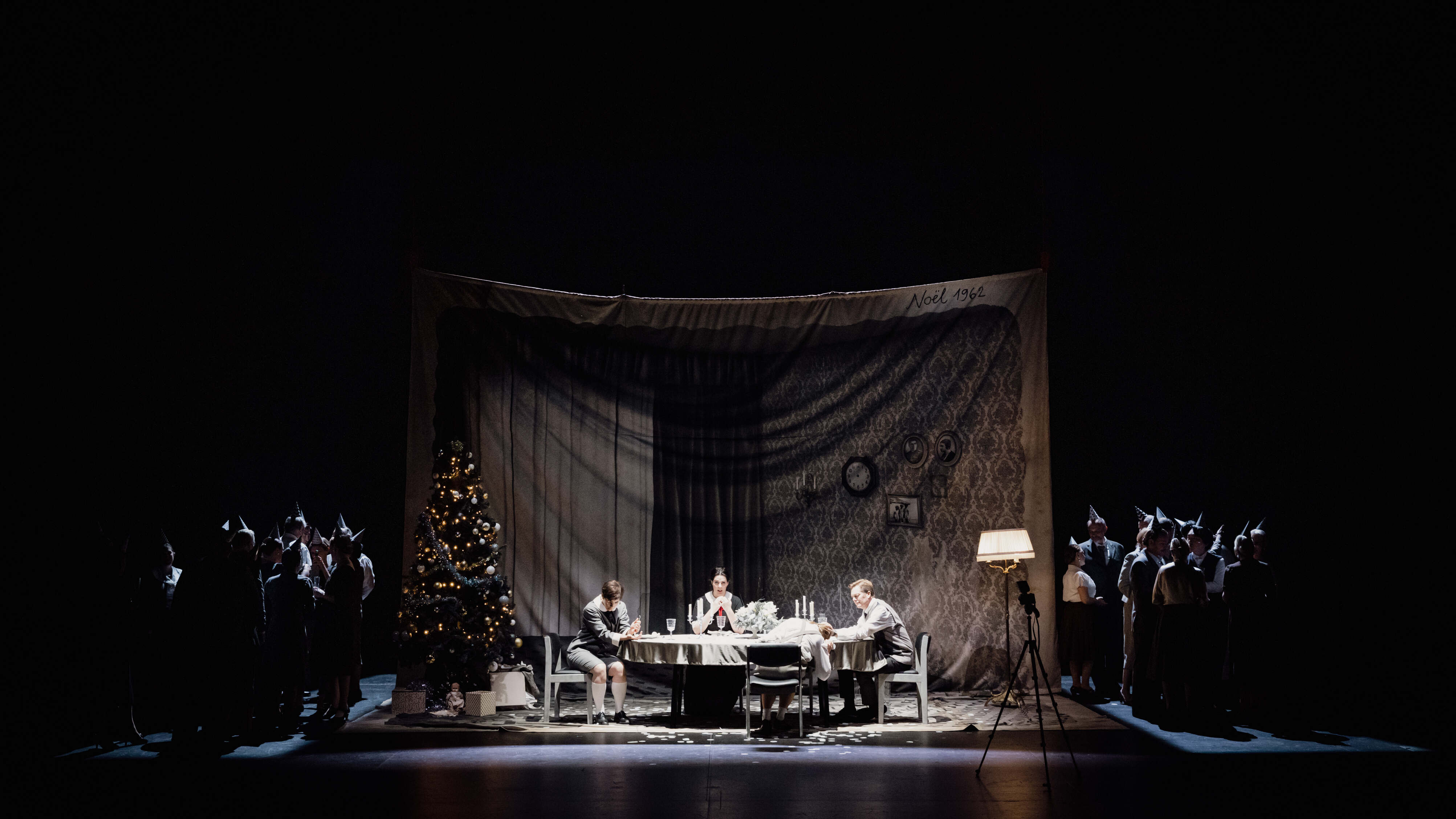- Libretto Father Giambattista Varesco after the play by Danchet
-
Music Wolfgang Amadeus Mozart
-
New production Opéra national de Lorraine
-
OPERA NATIONAL DE LORRAINE ORCHESTRA AND CHORUS
-
Conductor Jakob Lehmann
-
Stage director Lorenzo Ponte
-
Set design Alice Benazzi
- Costumes Giulia Rossena
- Lighting Emanuele Agliati
- Lighting assistant Alessandro Manni
-
Pictures by Simon Gosselin
-
Chorus master Guillaume Fauchère
-
Assistant conductor William Le Sage
-
Idomeneo Toby Spence
damante Héloïse Mas
- llia Siobhan Stagg
- Electre Amanda Woodbury
- Arbace Léo Vermot-Desroches
- The High Priest* Wook Kang
- The Voice of Neptune Louis Morvan
- Cretan women® Inna Jeskova and Séverine Maquaire
- Trojans Yongwoo Jung and Jinhyuck Kim
Distant chorus Yongwoo Jung, Ill Ju Lee, Jinhyuck Kim and Christophe Sagnier
- Meda Rosabel Huguet
*Opera Chorus soloists
Muths have different versions. After World war II, Christa Wolf began to rewrite myths from
a perspective that questions the hegemony of the fathers. In 2023 the story of Idomeneo
still need to be questioned: men and women are in the hands of the gods, the choices of a
king are blamed on a monster, human sacrifice is acceptable and love is told as a tool
capable to heal everything.
We start from the conflict with which the opera ends: God apparently solves everything for
everyone except for a single character. Electra cries out that joy and love have been stolen
from her. What is the crime for which she pledges revenge? I believe there has to be
something deeper than the love of Idamante. There is a hidden violence in this family. The
sacrifice of the child is presented as an accident. Whereas this sacrifice, this violence are
the very foundations of the city.
The opera is totally missing references to the Queen of Crete, wife of Idomeneo and
mother of damante. It is even difficult to trace its presence in other literary sources. Her
name was Meda and she was killed for treason. What was the betrayal that cost her a
damnatio memoriae? Meda was killed because she saw, because she knew on which
crime Crete lays: the perpetual abuse of the child by the Father. Around Idomeneo and his
family there is a culture that accepts and celebrates the sacrifice. In our staging we are in
the 60's. The Great Priest and the sacrifice will be represented as parts of the Christian
liturgy, the religion of the Father.
The killing of the children has already taken place when Idomeneo abused of them.
Religion hides the truth and keeps the horror away from men and women. The abuse is
possible because there is a community who tolerates it. The chorus plays the families that
live nearby Idomeneo. They want a peaceful life, which is threatened by the pain of these
children, and therefore they need a rite which heals and restore peace.
Electra is the one who reopens the wound. She is a 30/35 years woman of the 80's who
will travel through memory to find responsibilities; she will see and show us again Queen
Meda and therefore a possibility of a real new order based not on violence and sacrifice,
but on the protection of the weak.
The set tell this trip into memory through the means of analogical photography. The work
on the memory becomes the work of developing a picture. The narrative passages will be
marked by the photographic process. We will start from a family album from which the
body of the mother is deleted and we will see the mother's face at the end of the opera.
Christa Wolf wrote: "Little by little, when you begin to know, you begin to remember too.
Knowing and remembering are the same thing". While the story of Varesco goes along, the
staging puts the words and the actions of the characters under a different light. This story
is told from the perspective of a woman who is thought to be insane. This is a story about
the value of testimony, about memory and responsibility.
September - October 2023
 Giulia Rossena
Giulia Rossena























